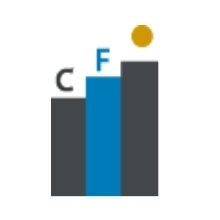

World Bank's Center of Excellence on Cooperative Financial Institutions (CoE-CFI)
Authors
Tags
- COVID-19 (2)
- Private Sector Development (1)
- Institutional Strengthening (2)
- Cooperative-financial-institutions (2)
- Rural Livelihoods (1)
- Category - Technology (3)
- Category - Safety Net (1)
- Category-Financial Cooperatives Sectors (2)
- Collaboration and Knowledge Exchange (1)
- Digital Technology & Innovation (1)
- Women in CFI (1)




Blog » Obituary: J.D. von Pischke
Obituary: J.D. von Pischke
J.D. started his 20-year long career at The World Bank in Washington DC in the spring of 1976, working mostly in three divisions but he would often be co-opted to teach in the education department (EDI) as well. He started in the Agricultural credit department and was sent overseas to evaluate small farmer loans in many countries in eastern Europe, India, Africa, Central America, Philippines and Yemen. J.D.’s conclusions were informed by his early training in credit analysis at Chase Manhattan and he became very disillusioned with what he discovered. He thought the theoretical objectives of most agricultural credit and rural development projects did not meet expectations. Realistic interest rates were not calculated nor risks adequately assessed. Loans were usually unsustainable. Unfortunately this was not what his supervisors wanted to hear as their objective seemed to be to “shove money out the door” ASAP.
In his seminal book Finance at the Frontier, published by the World Bank in 1991, he postulated and demonstrated that good loans can be made to individuals and firms at the "frontier” and that lending at the frontier can be remunerative to commercial banks, development banks, financial cooperatives and other financial institutions that retail credit and assume credit risk. Remunerative lending is important because most lenders, regardless of their ownership and institutional form, tend to avoid activities that are not attractive. Unremunerative lending is transitory, unstable, and not robust in the face of adversity. Credit markets function poorly when lenders are not adequately rewarded. Weak financial institutions do not do a good job serving society in general and firms and individuals at the frontier in particular.
J.D’s many publications were used in the Economic Development Institute in the Bank. It was said that he was slowly undermining the Bank’s modus operandi through these materials and spreading his thought processes more effectively than by his work with various agricultural projects of The Bank. Although his thinking had a significant impact -leading in the early 1990’s to a thorough reform of the financial sector projects of the World Bank and of other international organizations involving agricultural banks and credit lines- it was only after he retired from The Bank that a former supervisor did admit to J.D. that his message on agricultural credit had been correct all along. This pronouncement was delivered informally by a verbal exchange across a street in downtown D.C.!
J.D took special interest in financial cooperatives, which he studied in detail in many countries. These studies helped him understand how they create confidence thus making it possible to provide finance to small farms and businesses, contributing to manage risk and to create value. He was also on the Bank-Fund Staff Federal Credit Union board for 10 years first as a credit analyst and then as secretary.
We will miss him dearly. You can find a more detailed recount of his life following this link: In Memory of J.D. Von Pischke.